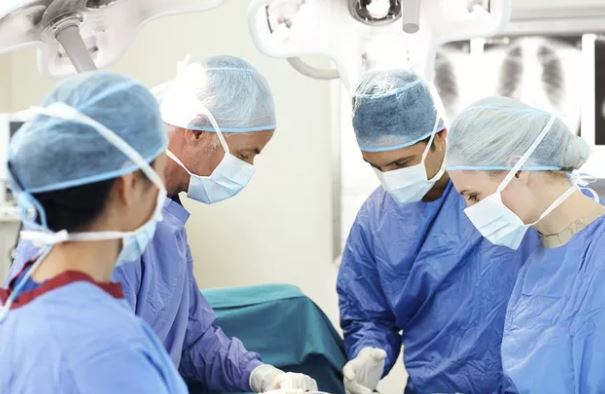How to Become a Surgical Tech – A surgical technologist is an allied health career that is ideal for people who like to be where the action is in the operating room. Also known as the “Surgical technology, ” “Scrub tech, ” or operating technique, surgical technologists assist with surgeries as part of the operating room staff, including nurses, surgeons, and other technicians and technologists.

The surgical technologists help to prepare the operating room, sterilizing the instruments and maintaining an inventory of them. Surgical technologists can also help cover the patient and prepare the incision site. In addition, surgical technologists will deliver instruments to nurses and surgeons as they are needed during surgery. Other functions during surgery include cutting sutures, sponge or instrument counting, holding retractors or carrying specimens to the laboratory.
After surgery, surgical technologists can help transfer the patient to a recovery area, and clean them or for the next patient.
The working environment for Surgical technologists
Most surgical technologists (more than 70%) work in the hospitals operating room. However, some may work in outpatient surgery centers, or in dental clinics. The operating rooms are well-lit and sterile environments.
Working as a surgical technologist requires a prolonged basis for long periods of time. The average week is about 40 hours; However, nights and weekends can be part of those hours, and surgical technologists may have to call for emergency surgeries.
Training and education for surgical technologists
Surgical technologists should obtain formal training in a surgical technologist program from a community college or a technical/vocational school. The programs vary in length from nine months to a certificate, 24 months to an associate degree. Most programs require a high school diploma, and there are around 450 accredited training programs nationwide, according to the Bureau of Labor Statistics.
As with most medical training programs, surgical technology programs consist of classroom learning and practical clinical training. Class subjects include anatomy, physiology, Microbiology, pharmacology, ethics and medical terminology. Students also learn about surgical procedures and patient care, according to the Department of Labour Statistics.
Certification for Surgical Technologists
Certification is preferred by most employers. There are two different pieces of advice that certify surgical technologists. One is the liaison board for the certification of the surgical technologist, which rewards the designation CST (Certified surgical technologist) when approving the test. One must graduate from an accredited surgical technologist program to be eligible for the test.
The other certification is the TS-C (technology in Surgery, certificate), which is granted by the NCCT (national Competition Testing Centre).
Qualifications for Surgical Technologists
In addition to knowledge of medical terminology and surgery, the surgical technologist must also have the excellent dexterity to handle countless instruments in complex forms. In addition, surgical technologists must be highly organized, proactive, conscientious, and sufficiently stable to handle the fast pace and demanding operating room environment.
Surgical technologists are also expected to monitor medical and technological advances in their field and complete all necessary continuing education hours needed to maintain active certification.
Advancement and career
Surgical technologists can advance by specializing in progressively more demanding and more difficult medical specialties. Some of the most challenging include neurosurgery and cardiac surgery.
In addition, some surgical technologists can advance to the main role in the operational equipment, known as the “first surgical assistant “. The first surgical assistant works directly with the surgeon, assuming some additional responsibilities.
Another advanced role for working is like a circulator. According to the Department of Labor Statistics, the circulator helps interview the patient before and after surgery and may also help with anesthesia.
Employment and prospects for surgical technologists
The employment perspective for surgical technologists is strong, with projected growth of about 30% over the ten-year period of 2012-2022. This is considered “much faster than the average” growth for a work sector, according to the Bureau of Labor Statistics.
The average salary for surgical technologists
The median salary for surgical technologists is $41790 annually, according to the Bureau of Labor Statistics. This equates to about $20.09 per hour for a full-time timeline, which is most work-surgical technicians. However, some of the top earners from $46000 to about $60240 annually.
